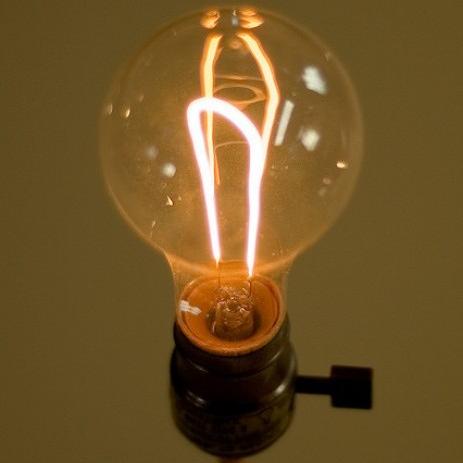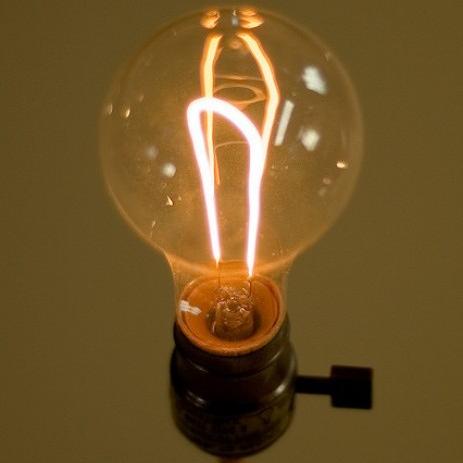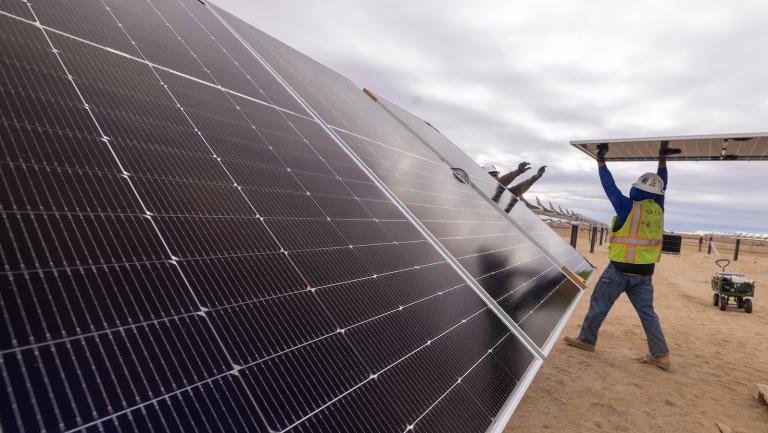 Rep. Fred Upton’s (R-Mich.) support of a incandescent light bulb ban may dim his chances to chair the House Energy and Commerce Committee. Courtesy of thorinside via FlickrVery soon Republican leaders will choose who will run the powerful House Energy and Commerce Committee. And the sad truth is that the decision may come down to light bulbs.
Rep. Fred Upton’s (R-Mich.) support of a incandescent light bulb ban may dim his chances to chair the House Energy and Commerce Committee. Courtesy of thorinside via FlickrVery soon Republican leaders will choose who will run the powerful House Energy and Commerce Committee. And the sad truth is that the decision may come down to light bulbs.
They found his bulb spot: The front-runner for the top position is Rep. Fred Upton (R-Mich.), who’s been bending over backwards recently to pump up his conservative cred. But alas, Upton has committed, in the past, a sin so vile that in the right-wing echo chamber he has pretty much become a spawn of Satan. Three years ago, he co-sponsored legislation to phase out energy-inefficient incandescent light bulbs. The horror!
These days that’s the kind of indiscretion that turns a Republican into a piñata. Before you could say, “Release the hounds!” the spewmeisters of the right were taking their whacks.
Glenn Beck cut to the chase and called Upton “all socialist.” Rush Limbaugh, ever the deep thinker, used slightly bigger words to raise the specter of big government coming into your bedroom to change the bulbs:
This would be a tone deaf disaster if the Republican leadership lets Fred Upton ascend to the chairmanship of the House energy committee. This is exactly the kind of nannyism, statism, what have you, that was voted against last week. No Republican complicit in nannyism, statism, can be rewarded this way.
Meanwhile, Rep. Joe Barton (R-Texas), Upton’s chief competitor for the position, is pretending to take the high road, saying nice things about Upton — although his staff is thought to be behind documents circulating on Capitol Hill that portray Upton as too moderate, including one titled, “Fred Upton: Part-Time Republican?”
Barton is asking Republican leaders to waive their term limit on committee chairs so he can hold on to the House Energy top spot. [Politico]
And in other green news:
Turn the fleet around: Don’t expect much in the way of energy or climate legislation to make it through Congress in the next two years. But one idea that apparently does have a shot is a conversion of the federal government’s fleet to electric cars. [The Hill]
That Jay madness lies: Sen. Jay Rockefeller (D-W.Va.) is back at it. He’s pushing Senate Majority Leader Harry Reid (Nev.) to allow a vote next month to stop the EPA from regulating greenhouse gases for the next two years. [Politico]
We don’t ask much: What a difference a year makes. With what little is left of this session of Congress, the wish list of an alliance of green and labor groups includes the likes of a federal renewable electricity standard and initiatives boosting energy efficiency in homes and office buildings. [The Hill]
Use it or lose it: Transportation Secretary Ray LaHood confirmed that federal money allocated for high-speed rail can’t be used for highway projects. Newly-elected Republican governors in Ohio and Wisconsin said they don’t want high-speed trains, and instead would use the hundreds of millions of dollars to fix roads. LaHood responded with a big forgettaboutit — he’ll give the money to states that do want fast trains. [Washington Post]
All downhill from here: Apparently, we’ve already reached peak oil — the point at which oil production around the world has peaked. According to the International Energy Agency, production topped out in 2006 at 70 million barrels a day. Production hasn’t dropped off dramatically, but demand, driven by China’s economic boom, is expected to shoot up by 20 percent. Not a pretty picture. [The New York Times]
Sea change: Contrary to conventional wisdom, researchers now say that ocean levels largely stayed the same for at least the past 2,000 years, but started rising when the planet became industrialized. [The New York Times]
No sucking way: Scientists used to think that deep sea volcanoes sucked up carbon. Turns out it’s just the opposite. They actually produce greenhouse gases. [Discovery News]




